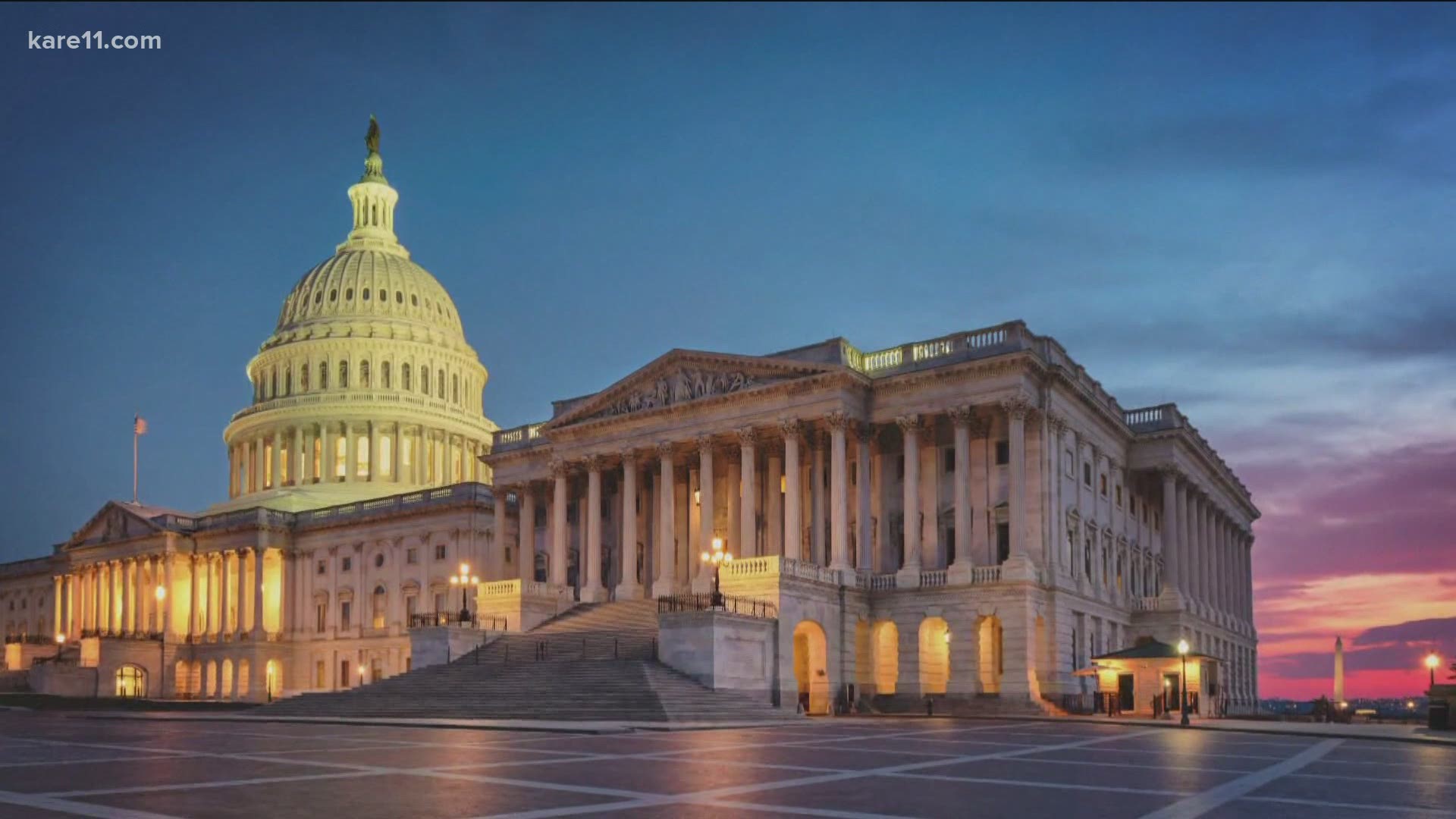ST PAUL, Minn. — In late February, before COVID-19 upended the country, self-employed house cleaner Jackie Kevitt counted a total of 16 clients.
Within weeks, the 51-year-old grandmother and Elk River native – who describes her health as “high-risk” – could only claim two clients. Her customers either lost their jobs and couldn’t afford to pay for cleanings, ended service because they were working from home full-time, or worried about having someone else in the house during a pandemic.
As a self-employed worker, Kevitt applied for Pandemic Unemployment Assistance, which came into existence at the end of March through the federal CARES Act.
“That,” she said, “helped pay the bills.”
Steadily, Kevitt’s client base grew as COVID-19 cases decreased over the summer. However, during the latest surge, her work declined again, leaving her in a dire financial position.
To make matters worse, the PUA program that she had relied upon expires Saturday, the day after Christmas, because President Trump has not yet signed the second COVID-19 relief bill approved by Congress last week. Trump tweeted Saturday that “I simply want to get our great people $2,000, rather than the measly $600,” referring to direct payments for people making under $75,000.
Democratic leadership in the U.S. House, finding rare common ground with the president, tried to add the $2,000 payment in a procedural move on Christmas Eve, but House Republican leadership blocked those efforts. Democrats say they’re going to try again on Monday.
Kevitt urged leaders to find a solution.
“Otherwise, we are pretty much on our own at this time,” Kevitt said. “Come together and work for us, the people, that have voted you in, and be there for us in this time.”
With federal unemployment programs expiring on Saturday, the Minnesota Department of Employment and Economic Development stated on its website that “obviously, we cannot implement the stimulus package until the president signs it and it becomes law.” The state has a backup plan for expiring federal benefits through the “special addition benefits” program, which the legislature passed to cover people on the Pandemic Emergency Unemployment Compensation Program (PEUC) and the Federal-State Extended Benefits Program (EB). Those programs largely help people who have seen their state benefits lapse because they’ve been out of work so long.
DEED Commissioner Steve Grove sent the following statement to KARE 11:
“A reminder in Minnesota that for workers whose UI benefits will end without federal action, Minnesota DEED will implement the recently passed MN Additional Benefits program,” Grove said. “You don't need to re-apply; we'll add either state or federal benefits as appropriate. More information is available at www.uimn.org.”
The special addition benefits from the state, however, do not apply to the PUA program for self-employed workers or independent contractors like Jackie Kevitt.
“My understanding is that it does not cover self-employment or gig workers,” Kevitt said, “so, [I guess] it’s great for everybody else.”
Younger people in Minnesota are also following the developments closely, after a court ruling made high school workers eligible for PUA. Cole Stevens, an 18-year-old who lost his food service job in Bloomington early in the pandemic, said he’s still trying to assess how the ongoing battle between the president, Democrats and Republicans impacts his age group.
“I’m disappointed, honestly. As soon as we had Congress on the same page, now we’re just waiting for the president to sign. I don’t know, it seems like they’re just constantly missing their deadlines,” Stevens said. “My message for them is just, don’t forget the workers. Don’t forget the young people.”

